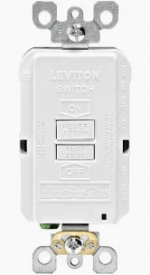We are dealing with an issue that arose this past winter and not addressing it until now.
Last January the heater in our tub went. It was the wiring that had corroded over time. We replaced the heater and everything was working perfectly. Please note we also recently within the past year replaced the circulation pump and flow switch. We left for a few months and came back to find that the breaker was tripped at the main panel. I inspected the GFCI, disconnected the tub and the main breaker stays on when flipped back on. I hooked the tub back up and turned the main breaker on but it would not stay on at all.
I have read that if you disconnect the components from GFCI and the breaker stays on, then it is the tub. But, wouldn't you expect the GFCI to pop as well if it was the tub since that is the first breaker in the line? It seems strange that the GFCI would not pop.
I am about to purchase a new circuit board, but want to be sure it is not the GFCI before moving forward.
Last January the heater in our tub went. It was the wiring that had corroded over time. We replaced the heater and everything was working perfectly. Please note we also recently within the past year replaced the circulation pump and flow switch. We left for a few months and came back to find that the breaker was tripped at the main panel. I inspected the GFCI, disconnected the tub and the main breaker stays on when flipped back on. I hooked the tub back up and turned the main breaker on but it would not stay on at all.
I have read that if you disconnect the components from GFCI and the breaker stays on, then it is the tub. But, wouldn't you expect the GFCI to pop as well if it was the tub since that is the first breaker in the line? It seems strange that the GFCI would not pop.
I am about to purchase a new circuit board, but want to be sure it is not the GFCI before moving forward.



